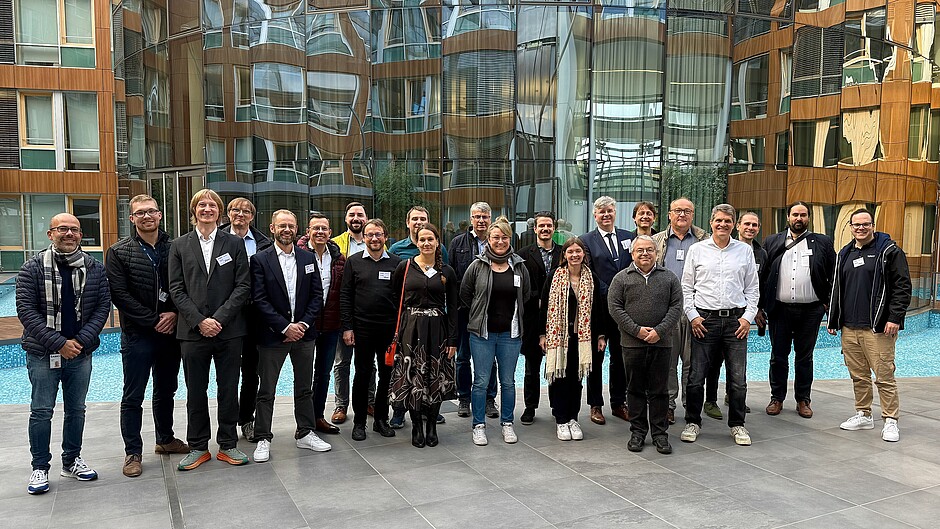Ottobrunn, October - IABG hosted the latest meeting of the German Industry Association for Quantum Security (DIVQSec). Founded in 2020, the association is committed to developing industrial solutions for quantum-secure communication and cryptography and strengthening technological sovereignty in Germany and Europe. The aim is to establish a national value chain that supports the security of critical infrastructures.
Experts estimate that quantum computers capable of breaking today's encryption methods will be available in the early 2030s. This already requires forward-looking planning and development of protective measures. Two approaches are at the heart of this: post-quantum cryptography (PQC): Cryptographic methods that are considered secure against quantum computers and can be implemented on existing hardware. Quantum key distribution (QKD): methods whose security is not based on solving mathematical problems but on physical principles. These methods require special, still cost-intensive hardware.
The meeting in Ottobrunn provided an important platform for the 16 member companies of the network to discuss the current status of developments and future challenges. The presentations by the five guest speakers, all renowned experts in the field of quantum computing and quantum security, led to lively discussions and an intensive exchange of ideas.
One of the highlights was the presentation on the technology of "MEM computing", a new type of computer chip design that could significantly speed up complex calculations, such as solving optimization problems. Other presentations dealt with the development status of quantum computers for cryptanalysis as well as progress in post-quantum cryptography (PQC) and cryptanalysis. An IT service provider shared practical experience with the application of quantum-safe communication and shed light on future developments in the industry. At the end of the lecture series, the measures required to integrate quantum key distribution (QKD) into existing WAN networks were critically scrutinized. The participants analyzed the current challenges and discussed concrete steps for the effective introduction of the new procedures.
The conference was characterized by an open and constructive atmosphere. The exchange brought to light innovative ideas and possible solutions that have the potential to significantly advance future projects. The commitment and expertise of those present helped to gain valuable insights that will further strengthen cooperation in the field of quantum security. IABG, as host, is pleased to have contributed to this important discussion and will continue to actively contribute to the development of secure, future-oriented technologies.
The presentations will be published shortly on the DIVQSec website.
